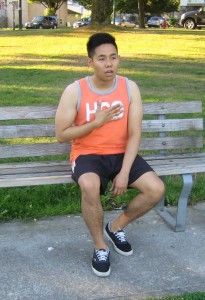The rib cage and the muscles that surround them are susceptible to injury. Once there is an injury in this area, it can be a broken bone or a pulled muscle.
A pulled rib muscle is an injury caused by overexertion. When the tear in the muscle is in the healing stage, the muscle will spasm to avoid unnecessary movement in the area. This protective spasm results to swelling and tenderness along with severe pain when the affected muscles are stretched.
A pulled rib muscle happens due to overextending of the body during a workout and excessive coughing caused by an illness. The chest pain due to pulled rib muscles triggers soreness and tenderness when touched.
Symptoms

- Feeling of stiffness which is a defense of the body to move due to pain
- Due to a tear or rupture, the affected area appears swollen and tender.
- The affected area becomes discolored or bruised due to damaged or broken blood vessels.
- Pain can be felt immediately after the injury and it can be mild to severe which depends on the severity of the damage.
- Weakness of the affected muscles
- Breathing difficulty when inhaling deeply since it causes stretching of the torn muscles and trigger pain.
- The chest, neck and area of the shoulder are swollen
- Painful sensation when carrying light materials and picking objects
Causes
- Performing vigorous or exhausting sports activities with poor body mechanics and improper lifting techniques
- A weakened tendon due to poor nutrition or lack of proper nourishment
- Being overweight in which the muscles can end up strained or pulled
Treatment
- Apply an ice pack on the pulled rib muscle in the first 24 hour after the injury in order to lessen the inflammation or bleeding. Compress the affected area for at least 20 minutes at a time for 3 times every day. The cold temporarily numbs the pain.
- Take the prescribed over-the-counter pain medication such as acetaminophen, ibuprofen and naproxen to help the lessen pain.
- Wear a rib belt to prevent too much pain and tear in the muscle as well as help minimize the movement of the chest.
- Take plenty of rest to promote fast healing of the pulled rib muscles. Avoid performing vigorous activities that makes the condition worse.
- Apply a warm compress on the affected ribs such as a heating pad to lessen the stiffness and soreness of the muscle.
- A mild pulled rib muscle usually heals in 3-4 weeks while a rib muscles that is severely affected heals in about 6 to 8 weeks.
- If there is no more pain in the affected area, gradually resume normal activities.
If the affected area does not heal in a couple of days, it is time to seek medical help immediately.
